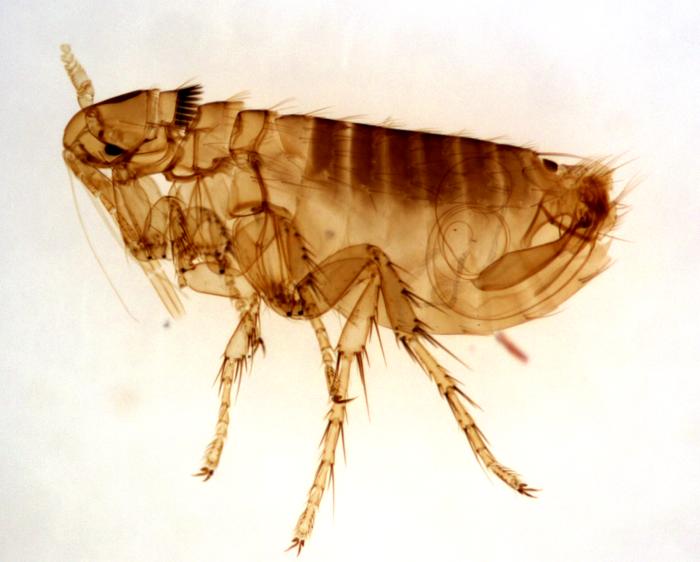Think you know everything there is to know about fleas? While you may have a general idea about how these blood-sucking parasites operate, there are probably some things that you don’t know. In fact, there are several flea myths floating around out there that people seem to believe. To help shed some light on this topic, we’ve covered some of the most common flea myths and misconceptions.

Adult male Oropsylla Montana flea: photo by kat m research.
Myth #1) My Home Is Safe With Just a “Few” Fleas
Some people wrongfully assume they are safe because they only see a couple of fleas. Even if your home isn’t to the point of a full blown infestation, the sight of just couple of fleas is troubling enough.
The fact is that only 10% of the flea population is in the adult stage — which is the stage you’ll see. So this means if you see 10 fleas on your rug, there are probably 90 more in the larvae and egg stage.
Myth #2) The Only Real Threat of Fleas is Itching
Another all-too-common myth is that fleas are minor nuisance that cause nothing more than itching. While flea bites can certainly result in an itching sensation, especially for pets and humans that are allergic to them, they can pose a real danger to your health as well. If you care about your family and pets, you must take the necessary action to treat and prevent flea infestations.
Diseases and pathogens transmitted by fleas:
- Plague
- Typhus
- Cat scratch fever
- Tape worms
Myth #3) Fleas Go Away In The Winter
I wish this were true, but unfortunately it’s not. Some of the flea population will naturally die in the freezing cold temperatures of mid-winter, but a large portion of them will continue to thrive. In particular, fleas inside your home will stay alive thanks to the heat and shelter it provides.
Flea eggs can also live through the cold thanks to their hard protective shell. Once the temperature rises and the conditions are just right, they’ll break out of their shell to begin their search for a host.
Myth #4) Flea Collars Are The Best Way To Treat My Pet’s Fleas
On the contrary, flea collars are actually one of the least effective ways to treat an infestation. They tend to contain large amounts of harsh pesticide chemicals that have minimal impact on the overall flea population. And to make matters worse, your pet will breathe in these chemicals while wearing the flea collar.
